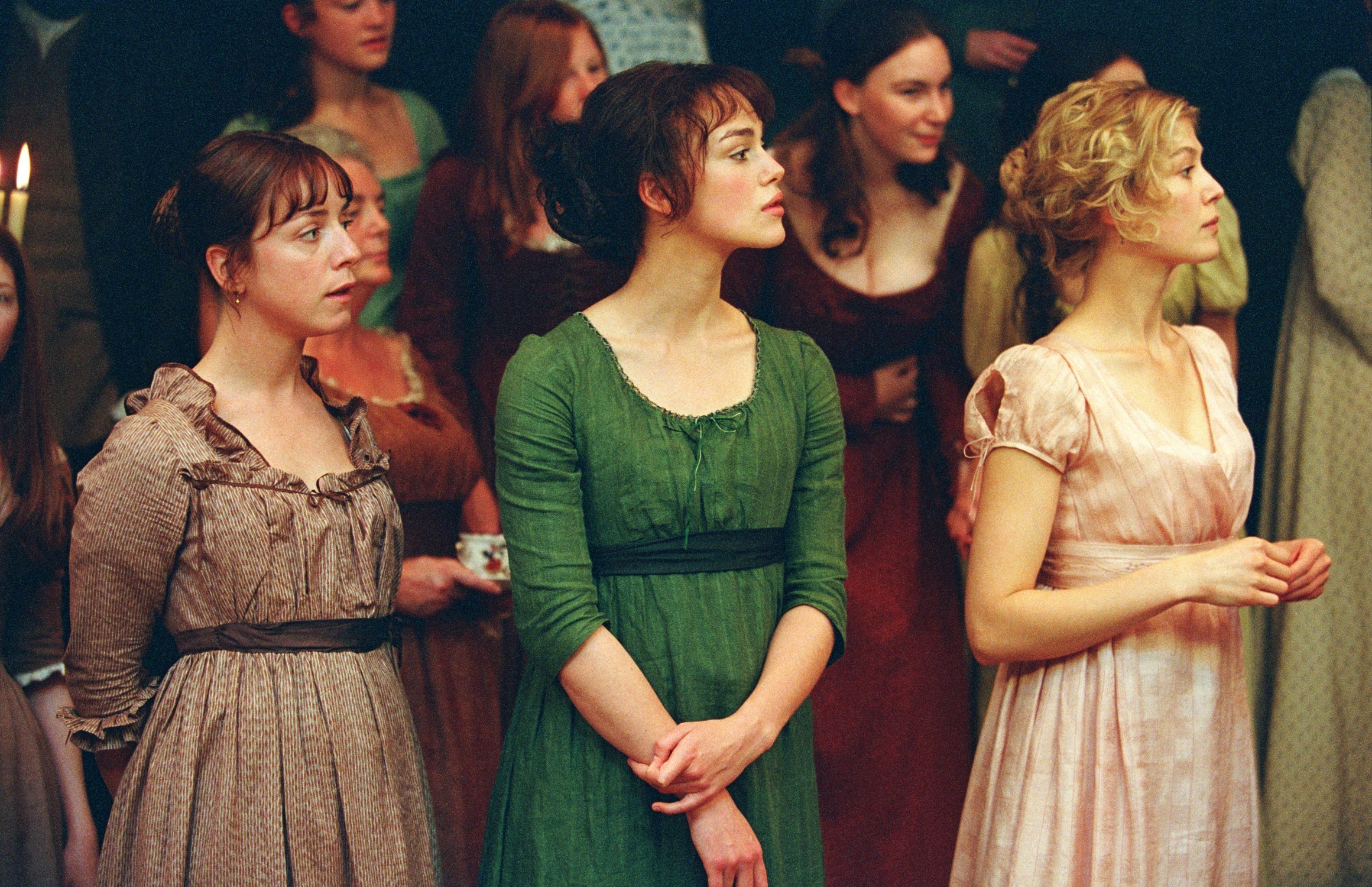You likely remember the story from reading it during high school, each chapter and each page and each paragraph picked apart by your English teacher. Maybe your mom recommended it after reading it with her neighborhood book club, or your grandma passed down her ancient copy, thumbed through and annotated.
No matter how you first heard of the classic gothic romance novel “Pride and Prejudice” by Jane Austen, you probably fall within one of two categories regarding your thoughts about the book. Either you cannot stand another word of its 19th century formal jargon and trivial subject matter, or you think it may be the most clever, laudable British novel known to man.
Regardless of your opinion, one thing about “Pride and Prejudice” is objectively clear: It is the perfect summer beach read. As a tale of unexpected romance and fearless female independence sprinkled with sharp and witty sarcasm, “Pride and Prejudice” is a page turner.
Vulture agrees that its remarkable combination of entertaining wit and empowering themes for young women suppressed by culture make “Pride and Prejudice” a timeless read, as “the novel that launched a thousand modern tributes remains readable, sly and surprising.”
Whether you want to unwind with an easy, breezy read by the ocean or challenge your wit and your keenness of reading apprehension, “Pride and Prejudice” is the ideal summer novel for you, your mom and your grandma.
You may even catch your dad or your brother or your boyfriend reading over your shoulder or with their own copy at the beach this summer.
So, if you’re considering giving “Pride and Prejudice” another chance after high school or if you’re thinking of reading it for the first time, here are four reasons to help further convince you to dust off your old copy or head to your local library.
1. It’s genuinely laugh-out-loud funny.
Whose character does Austen build on foundations of sarcasm, a dry sense of humor and an endless stream of hilarious clapbacks nonchalantly directed toward his obnoxious wife? You guessed it — the one and only Mr. Bennet.
As the sole male member of his family and inhabitant at the Longbourne Estate, Mr. Bennet serves as the rationale necessary to calm the constant conversation over money, men and marriage spewing out of the mouths of his wife and four of his daughters — sans Lizzy, that is.
Elizabeth Bennet, known by family and friends as Lizzy or Eliza, resembles her father the most out of the sisters. Therefore, many witty remarks are attributed to her character as well, especially in relation to her judgmental view of Mr. Darcy as quite the entitled brat (of course, prior to their unexpected budding romance).
“It’s a truth universally acknowledged, that a single man in possession of a good fortune, must be in want of wife,” Lizzy retorts sarcastically to Mrs. Bennet’s obsession with the arrival of the young Mr. Bingley and all his wealth into town.
Although her remarks seem to extend from a certain internal wisdom far surpassing her age as they are thick with 19th century formalities, Lizzy’s comments poke light-hearted fun at the serious and suppressive world around her, especially if read through a lens of a cynical sense of humor.
“Pride and Prejudice” has an array of additional characters who serve as comic relief from the romantic drama unfolding between the lines. From the dull Bennet sister Mary who turns a cold shoulder toward frivolity, to the awkward romantic advances of the cringe-worthy Mr. Collins, the comedic figures will never fail to make you laugh.
2. It’s filled with dramatic romance.
Instead of binge-watching “Pride and Prejudice” on Netflix this summer, you might find yourself tearing through the soap opera that is “Pride and Prejudice” — and what’s more is although you can’t bring your TV or laptop to the beach, you can bring a book.
Allow yourself to become enveloped of the drama between Mrs. Bennet and Lizzy, Lizzy and Ms. Bingley, Ms. Bingley and Mr. Darcy, Mr. Darcy and Mr. Wickham — the list goes on and on. Yet, the tangled relationship that develops between Elizabeth and Mr. Darcy takes the cake as the most enthralling source of drama within the novel.
Although both are incredibly opinionated, the tension between Lizzy’s carefree countenance and Mr. Darcy’s introversion creates an air of hopeful suspense that the pair will end up together.
Their aversion toward one another creates dramatic irony, hinting to readers that a spark is brewing beneath their brooding exchanges.
So, make yourself comfy in your beach chair, apply a generous amount of sunscreen and go ahead and dig your feet in the sand because you will not want to put this tale of forbidden love — deemed so by Eliza Bennet herself — down this summer.
3. It’s the feel-good story of an independent young woman.
Feel empowered by Eliza Bennet’s unwavering confidence and ability to remain humble, though she is well aware of her heightened understanding of how society functions.
Lizzy knows she does not need a rich husband to find happiness and stability in her life, contrary to her mother’s wishes. “There is a stubbornness about me that never can bear to be frightened at the will of others. My courage always rises at every attempt to intimidate me,” Lizzy says.
In this way, although any novel regarding marriage during the 19th century appears outwardly fueled by sexism and a disregard to female independence, “Pride and Prejudice” has strong feminist undertones — and for this, readers have Austen to thank.
Austen has written a novel with such incredible elasticity, that despite its period piece façade, its issues and the way Lizzy handles them translates well for young women today.
4. It’s quotable as hell.
Although the story mirrors that of a soap opera romance, “Pride and Prejudice” is not a frivolous read; on the contrary, its lessons are quite unforgettable. Austen’s characters offer readers a great many quotes by which to live. In some cases, her words even spark a reality check.
“The more I see of the world, the more am I dissatisfied with it; and every day confirms my belief of the inconsistency of all human characters, and of the little dependence that can be placed on the appearance of merit or sense,” says Elizabeth.
By its title, you might assume “Pride and Prejudice” is simply a hoity-toity account of the lives of the snobbishly rich in the 19th century. Then again, as sister Mary Bennet says herself, “Vanity and pride are different things, though the words are often used synonymously. A person may be proud without being vain. Pride relates more to our opinion of ourselves, vanity to what we would have others think of us.”
In this way, the novel proves to be an introspective journey of a young woman trying to navigate the twists, turns and roadblocks of societal expectations. Doing so successfully — therefore, never failing to remain steadfast in her modest surety of herself — Lizzy becomes a role model for other young female readers attempting to push back against the 21st century mold.
“I am only resolved to act in that manner, which will, in my own opinion, constitute my happiness, without reference to you, or to any person so wholly unconnected with me,” says Elizabeth regarding her independence.
As many people use their relaxed summer schedule to practice mindfulness and to reinvent oneself, “Pride and Prejudice” is a perfect companion for the road toward a better you. So, find your beach — and your book.

















